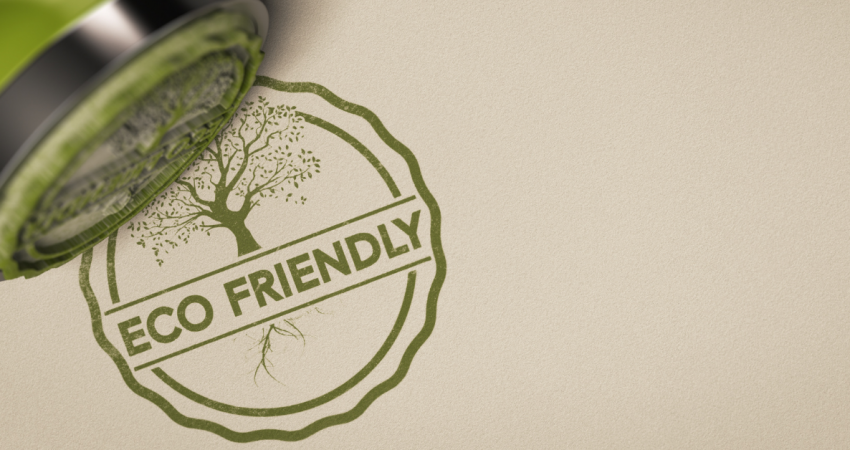All eyes on you | Eco-friendly brands are the future of commerce

As serious conversations about climate action and the world’s path to a 1.5 0c rise in global temperature concluded in Glasgow on November 12, examining the committed efforts of corporate brands in pursuit of this shared goal becomes necessary. And Africa – the continent leading in the number of countries most affected by the already unfurling impact of climate change (with droughts in Kenya, and floods in Sudan that have displaced thousands) is a good place to examine how the world’s largest corporations look to the continent to explore its wealth opportunities.
Since climate change studies really picked up in the 1970s, great strides have been made in understanding the source of the culprit poison eating away at the earth’s stratosphere and worsening climate conditions – CO2 from human activities. But more than that, the specific human activities that produce most of this poison. The corporate world leads with just 100 major corporations responsible for over 70% of global emissions of greenhouse gas since 1988, a report says.
There are pledges and plans by some of these energy leaders to achieve net-zero emissions by 2050 in pursuit of the goal to save the planet, but what do these pledges mean in real-time? We look at some of the brands leading in sustainability efforts in Africa and what that means for their brand image now and in years to come.
Eco-conscious is the new fad
The Carbon Majors Report (link to pdf) “pinpoints how a relatively small set of fossil fuel producers may hold the key to systemic change on carbon emissions,” says Pedro Faria, technical director at environmental non-profit CDP, which published the report in collaboration with the Climate Accountability Institute.
But it is not just fossil fuel producers that play a role in this. Industries, big and small, from banking to hospitality and fashion play a role in environmental integrity. In the coming years, sustainability practices of brands will become part of the determining factors of the brand’s positive or negative image to consumers.
The goal, for these corporations whose economic activities both bring prosperity as well as contribute to the deterioration of the environment, is to first achieve Carbon Neutrality – where a company fully offsets its greenhouse emissions by investing in carbon removal equivalent to its emission levels, then eventually embrace clean energy that isn’t detrimental to the environment.
Some Nigerian brands are leading the way to a sustainable corporate world that continues to create the value needed today without jeopardizing the future.
Sustainable business practices have been embraced in the last handful of years by major brands. Practices like Access Bank’s nifty idea to introduce paperless work processes and reduce the use of paper in all its branches as well as powering over 200 of its ATMs with solar energy. It isn’t the only brand to make efforts towards a greener world future that will in turn ensure a greener future for businesses.
First Bank, in its effort to reduce its carbon footprint, has also procured renewable energy, engages with communities on environmental protection and promotes tree planting across the country.
Nigeria Bottling Company (NBC) isn’t left behind either. The brewer had in line with its sustainability agenda, driven through the Brewing a Better World (BaBW) initiative signed an agreement with the Ogun State Ministry of Forestry for the reforestation of 500 hectares of the Olokemeji Forest reserve in Abeokuta. The project will see 600, 000 trees planted at completion.
The fashion industry, whose burden of guilt from decades of environmentally harmful practices creating and marketing fast fashion means it has a greater responsibility yet to do better, is decidedly working towards that.
Fashion brands like Sabi Mode and Labake Lagos are churning out fashionable outfits made from upcycling and recycling.
The efforts are there, the fad is solid, but is it enough?
Consumers see you
Here is what needs noting about #COP26: Over the din of conversations about what to do, how to do it, when to do it and by whom, is the spoken awareness that some of the countries that are seemingly more diligent than others in these efforts are backsliding.
Some countries, like the UK and Canada, who are at the forefront of the call for clean energy around the world, are continuing to expand the use of coal in their own territories while maintaining their investments in fossil fuel.
It is noteworthy that after decades of work by climate activists, people are noticing these things and calling attention to them. It is especially noteworthy as increased awareness forces more people to ask what their favourite brands are doing, how they are chipping in, because some brands may feel a sense of missing out and join the fad half-heartedly.
Consumers see you. Particularly the very young who harbour anxiety about a worsening climate condition that will most affect their quality of life. These consumers have their eyes on you. And you can be the crème de la crème of the corporate world of the future or the brand at the center of a generation’s collective ire.

